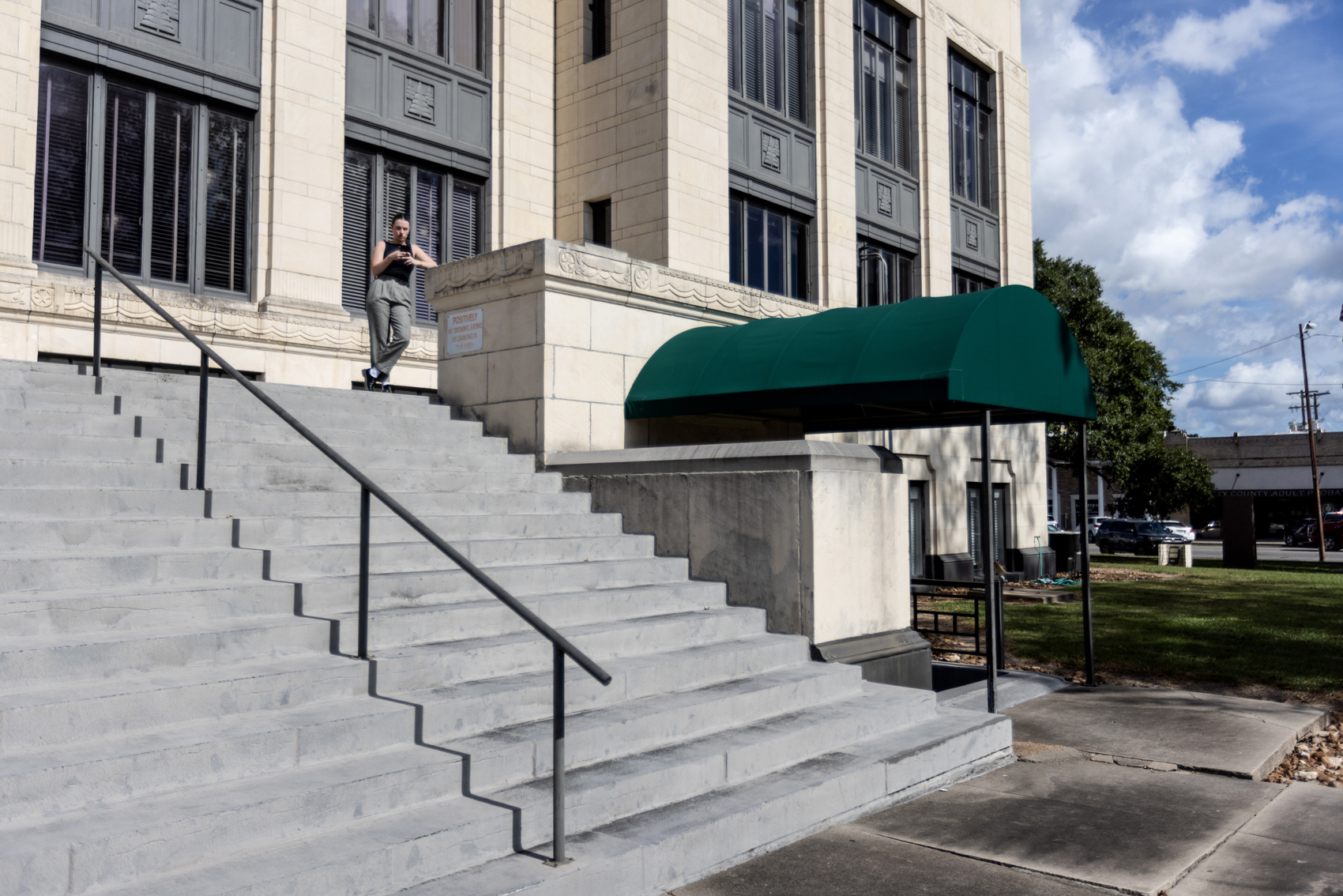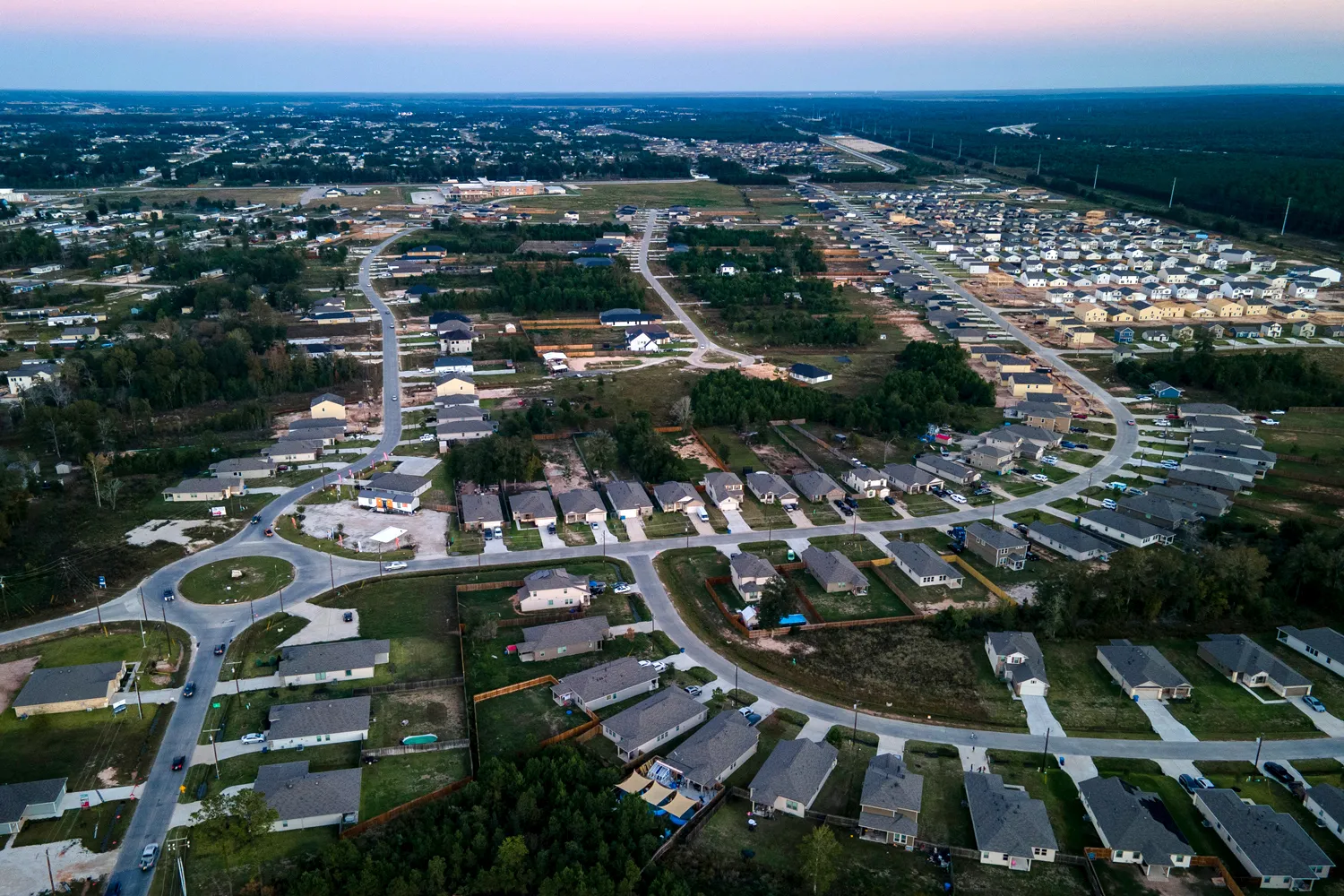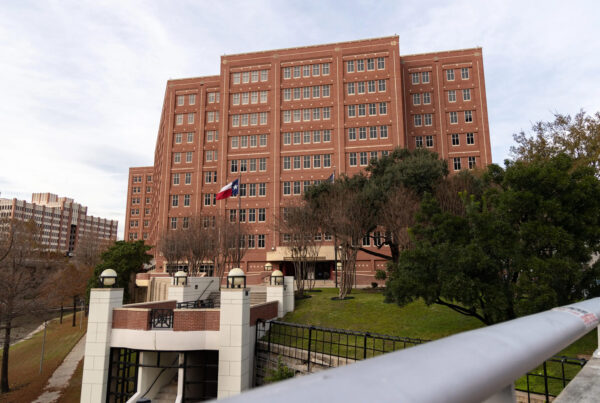From Houston Landing:
Haz clic aquí para leer una versión de esta historia en español.
The federal government is suing Colony Ridge, accusing the Houston-area developer of using fraudulent lending practices targeting tens of thousands of Latino buyers with false statements and predatory loans in rural Liberty County.
The U.S. Department of Justice and Consumer Financial Protection Bureau lawsuit filed Wednesday in the Southern District of Texas echoes many of the findings in a recent Houston Landing investigation that examined the business practices of the sprawling subdivision.
“Today’s complaint alleges that Colony Ridge targeted Hispanic consumers with predatory loans, misled borrowers about the water, sewer, and electrical infrastructure on its lots, and exploited language barriers by conducting most of its marketing in Spanish while offering important transaction documents only in English,” Attorney General Merrick B. Garland wrote in a statement.
“Discrimination in lending harms families and neighborhoods for generations, it is wrong, and it has no place in our country.”

The lawsuit says the developer’s practices violate four federal laws: the Equal Credit Opportunity Act, the Fair Housing Act, the Consumer Financial Protection Act and the Interstate Land Sales Full Disclosure Act.
The government is seeking to halt the lending practices, provide relief for those harmed by them and impose a civil penalty on the developers, according to a news release.
Colony Ridge’s CEO and president, John Harris, told the Landing the company was blindsided by the lawsuit.
“The lawsuit is baseless and both outrageous and inflammatory,” he wrote in a statement. “Our business thrives off customer referrals because landowners are happy and able to experience the American Dream of home-owning property.”
Harris added that Colony Ridge loans to customers who have no other opportunity to borrow from a traditional lender, like a bank, and that he is proud of the company’s relationship with its clientele.
An ‘extraordinary’ foreclosure rate
The lawsuit lays out a bait-and-switch land sale scheme in which the developers allegedly target potential buyers with advertising almost exclusively in Spanish, featuring Latin American flags and regional music from Latin America.
The lawsuit alleges the developers were able to lure tens of thousands of vulnerable Latino borrowers by offering properties for minimal down payments and above-average interest rates. Federal officials said Colony Ridge “continuously fails to assess borrowers’ ability to repay the credit,” contributing to an “extraordinary” foreclosure rate.
At least 30 percent of all seller-financed lots sold between 2019 and 2022 were foreclosed on within three years of their purchase, 15 times the national average, federal officials wrote in their lawsuit. Liberty County reported more foreclosures than some of Texas’ largest counties, including Dallas and Bexar, with Colony Ridge accounting for 92 percent of Liberty County foreclosures, federal officials said.
This is the first predatory mortgage lending case brought by the Justice Department, Assistant Attorney General Kristen Clarke said during a news conference Wednesday.
The Colony Ridge scheme is a consequence of historical redlining, a discriminatory practice that consistently denies people of color mortgages, insurance loans and other financial services. The company’s practices leave vulnerable communities without options for credit, creating ripe targets for homeownership scams, Clarke said.

Wednesday’s lawsuit is the Justice Department’s first attempt at “reverse redlining” through its Combatting Redlining Initiative.
The Houston Landing’s investigation published Dec. 14 found an unusually high turnover rate of properties in Colony Ridge. Experts said the churn of buying, foreclosing, and reselling was indicative of a predatory lending scheme.
A Landing analysis of county records found residents returned 15,759 of 35,000-plus properties to Colony Ridge over the last decade, reflecting how thousands of people have had their dreams of homeownership stripped away from them.
Records obtained by the Landing showed the developer routinely sold and financed properties to buyers using unorthodox methods. The company required virtually no down payment, but financed loans at a 12.9 percent interest rate — often more than double the typical rate for mortgages.
The approach contributed to an unusually high foreclosure rate. Colony Ridge officials told the Landing that the development’s foreclosure rate reached 11.3 percent of its holdings in 2022, about 50 times higher than the national average.

Landing reporters witnessed how the quick turnover of properties takes place: A representative of the developer standing at the top of the Liberty County courthouse steps, reading a list of properties Colony Ridge foreclosed on. Without anyone else attending the legally-required public auction, Colony Ridge repurchased all its properties.
In response to the Landing’s investigation, Harris said Colony Ridge follows the law and that his company’s practice of offering land to buyers with little to no credit history creates opportunities where there are none.
Both the Landing’s investigation and the federal lawsuit highlighted how the consequence for many homeowners was the loss of the American Dream.
“In the last decade, tens of thousands of Latino residents in search of the American Dream have moved to Colony Ridge – a Liberty County development that spans 33,000 acres and has become a punching bag for some Texas Republicans. But that dream of homeownership has become an increasingly difficult reality for many of them,” the Landing wrote.
Liberty County Judge Jay Knight said he didn’t see the federal lawsuit coming, but he’s curious to see how everything unfolds.
“If you kick enough rocks, you’re gonna turn one over and find something,” he said. “It’s in the hands of the court system now. Let them decide. And meanwhile, I’ll have the popcorn ready.”
Rex Mann, a real estate attorney based in Houston, said the lawsuit reveals how egregious Colony Ridge’s lending practices are.
“They’re being pushy, they’re not trying to disclose information, they’re just trying to get them to sign on the dotted line,” Mann said. “They’re treating them like chicken on the assembly line to take them to slaughter … that’s not good.”
Other county officials said they are prepared for any additional information requests the federal government may require.
“Our hope is that the matter is resolved timely and efficiently in the interest of our community,” said Lana McCarty, the chief administrator of Liberty County’s appraisal district.
Residents react
Carlos Mauricio Jarquin, a former property owner featured in the Landing’s investigation, blames Colony Ridge for his ongoing financial crisis. When reached Wednesday, he expressed relief at the news of the lawsuit.
“I never imagined anything like this, because I knocked on so many doors and none of them opened … I feel really happy. I know the federal government always does something for the people,” he said in Spanish.
Jarquin owned a piece of land in Colony Ridge’s Bella Vista subdivision from 2018 to 2020. He maintained the property and made payments until he suddenly broke his leg in June 2020. Out of work and financially scrambling, Jarquin asked Colony Ridge for flexibility with his payments but received none. Later, he was forced to transfer the title of his property to a new owner.
In order to make ends meet, Jarquin took out two personal finance loans totaling nearly $15,000, which he is still trying to pay off.
Now the Honduran native hopes he can be compensated for even just a fraction of the tens of thousands of dollars he’s lost.
He said his dream is that the lawsuit will require developers to be more clear and specific about what services are offered before residents sign contracts. He would also like to see more protections set in place for residents in case accidents, like his, or natural disasters occur.
“Just like what is offered to Americans,” Jarquin said. “They give them all of their warranties when they buy something. And to us, they never gave us anything. No protection for anything.”
Former Colony Ridge residents SuEllen and Keilah Sánchez were also encouraged by the lawsuit’s announcement.
The citizen activists started a website called Terrenos Houston Demanda in 2021 and have been gathering anecdotes about residents’ experiences with an eye on filing a class-action lawsuit against the company.
“Our goal has always been to ensure justice for those without a voice,” they wrote in a statement Wednesday. “Despite informing Texas senators about Colony Ridge’s deceptive practices, they have turned a blind eye, ignoring our pleas and silencing the voices of the victims. We hope this sparks a change for numerous victims and individuals who have suffered.”
Nielsen Montero, a business owner in Colony Ridge, is cautiously optimistic that the lawsuit may help hold the developer accountable, but said the lawsuit doesn’t go far enough.
“I feel like they’re doing something, but not doing anything,” he said, adding in Spanish that it feels as if the government is just trying to check a box off a to-do list.
Ultimately, Montero said, the community wants to escape the burden of debt Colony Ridge has placed on them.
“They hope that this exaggerated amount will be fixed, and that those trap loans will be fixed,” he said. “They want to get out of that unpayable debt.”
The federal government requests anyone who believes they were harmed by Colony Ridge to call the DOJ’s Housing Discrimination hotline at 1-833-591-0291 or email ColonyRidge.Lawsuit@usdoj.gov.
This article first appeared on Houston Landing and is republished here under a Creative Commons license.














